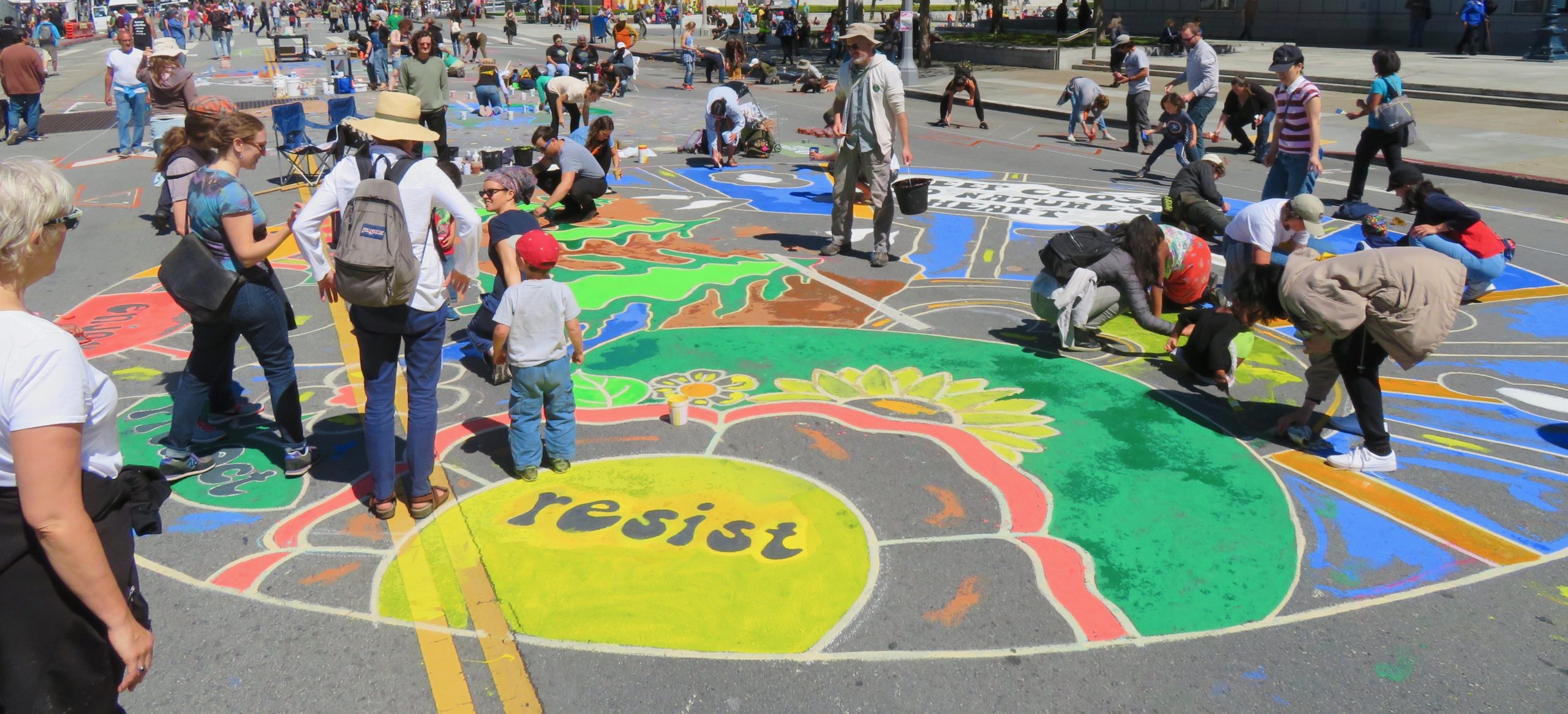Our Goal
The Peggy and Jack Baskin Foundation believes “the climate crisis is not gender neutral”[1]. We seek to fund programs that address the disproportionate effect of environmental injustice on gender-oppressed individuals, exacerbating gender and racial inequities, with a particular focus on environmental racism affecting women and gender-expansive individuals who identify as Black, Latina, Indigenous, Asian American, Pacific Islander, Muslim, immigrant, or undocumented.
Movements for environmental justice are closely entwined with movements for gender, racial, and Indigenous liberation. Most environmental activists are women[2], and the United Nations estimates that 80% of people displaced by climate change are women[3]. Indigenous land stewardship practices provide some of the most promising paths to environmental protection, making land rematriation and Indigenous environmental leadership crucial to gender-responsive and racially equitable environmental justice work.
The climate catastrophe harms sexual and reproductive health, inflicting the most harm on people already subject to racial and socioeconomic injustices. “Studies and reports have shown links between exposure to heat, wildfire smoke, flooding, hurricanes, and fossil fuel extraction, and poor maternal health and birth outcomes”[4]. Systemic environmental racism places racially oppressed individuals at risk of these harms by forcing them to live near sites of hazardous waste and in neighborhoods with elevated levels of air and water pollution[5].
“All of us will be affected by the climate crisis, but not all of us will be affected equally. Those hit the hardest will mostly be those who have done the least to cause the crisis, with the least capacity to adapt”[6]. Women and gender-expansive people are subject to employment and wage discrimination, with the most severe economic injustices affecting women of color[7], preventing them from accessing resources to avoid environmental harms or seek safety when disasters occur.
Gender-oppressed people, especially BIPOC women and gender-expansive individuals, must have access to participation in environmental and political decision-making in order to secure policy changes that would make their communities more environmentally healthy and sustainable. Gender-responsive environmental action policies are a necessary aspect of the eradication of both environmental degradation and gender inequity.
The Peggy and Jack Baskin Foundation seeks to address environmental injustice by providing funding to support nonprofit organizations that 1) work on legislation and policy advocacy to mitigate environmental injustice and/or environmental racism 2) provide educational resources on land rematriation and/or environmental conservation practices and/or to campaign for Indigenous land stewardship, and/or 3) provide legal or advocacy services for women and gender-expansive people experiencing environmental racism or environmentally unsafe housing or working conditions.
What We Look For
The Peggy and Jack Baskin Foundation would like to support programs, organizations, and initiatives that incorporate the following components through existing guidelines:
Please note: The Peggy and Jack Baskin Foundation is not afraid of the word feminism! We encourage you to openly discuss your intersectional feminist programming, goals, or approach.
To Apply
Unsolicited propoals will not be accepted.
[1] Nicole Greenfield, “What is Climate Feminism?” Natural Resources Defense Council, March 18, 2021
[3] André B. Rosay, “Violence Against American Indian and Alaska Native Women and Men,” June 1, 2016
[4] Human Rights Watch, “US: Include Maternal Health in Climate Change Action,” April 20, 2021
[6] Groundswell, “Climate Justice”
[7] American Association of University Women, “Race and the Pay Gap”

